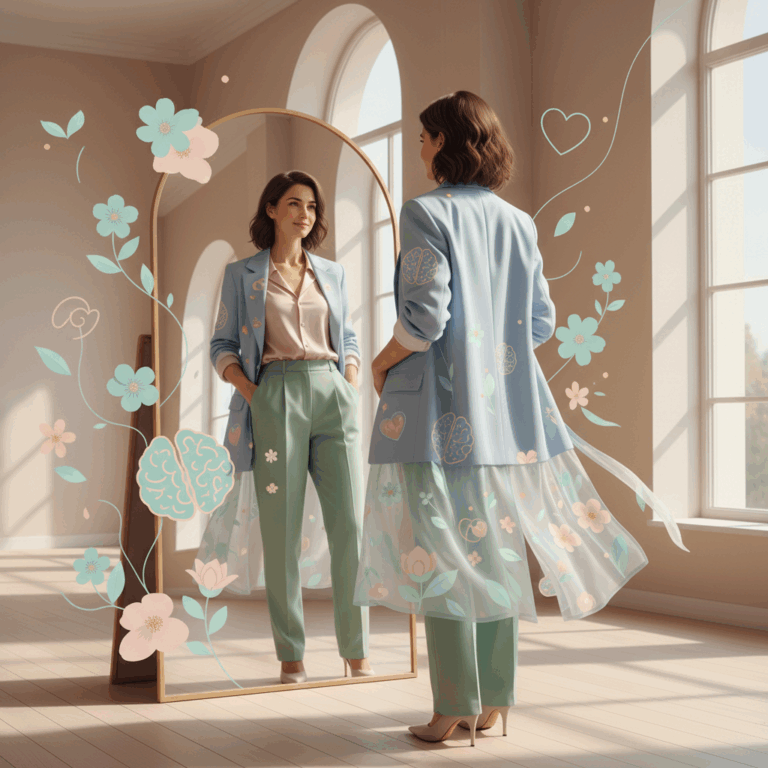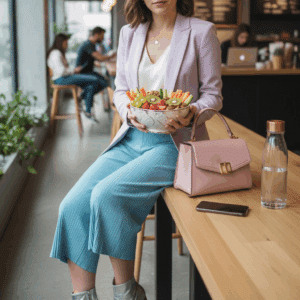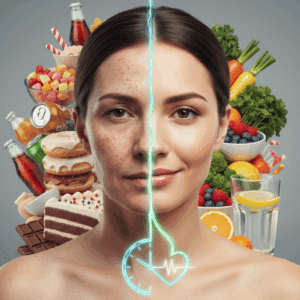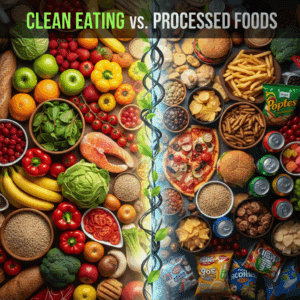Fashion as a Tool for Self-Expression and Emotional Well-being
Fashion plays a crucial role not just in style but as a powerful form of self-expression. It allows individuals to communicate their personal identity and emotions without words.
Beyond appearance, clothing can directly impact emotional well-being, boosting confidence and enhancing mood by reflecting who we truly are inside and out.
Understanding the connection between fashion and mental health reveals how daily clothing choices influence feelings and social interactions, shaping an overall sense of happiness.
Clothing and Personal Identity
Clothing acts as a mirror of individuality, enabling people to present their unique selves to the world. Choosing styles that resonate personally strengthens identity.
When clothing aligns with one’s inner values and personality, it increases comfort and self-acceptance, making individuals feel authentic in various social settings.
This expression through attire fosters a sense of belonging and confidence, which are essential components of mental well-being.
Fashion’s Role in Mood and Self-Perception
The clothes we wear influence not only how others see us but also how we perceive ourselves. Dressing for certain moods can elevate feelings of happiness and control.
Wearing outfits that boost confidence can reduce anxiety and negative self-talk, positively impacting overall mental health by enhancing self-esteem.
Fashion becomes a subtle yet effective tool for emotional regulation, where specific choices can brighten moods or prepare the mind for challenging situations.
Positive Effects of Fashion on Mental Health
Fashion holds the power to significantly enhance mental health by boosting confidence and fostering positive emotions. Wearing clothes that reflect one’s true self elevates self-esteem.
Through intentional clothing choices, individuals can regulate mood and express self-care, creating a supportive loop of well-being and emotional balance.
Understanding these positive effects helps people use fashion as a tool for empowerment rather than pressure.
Boosting Confidence and Self-Esteem
Choosing outfits that resonate with personal style can boost confidence and self-worth. When individuals feel comfortable and authentic, they naturally radiate positivity.
This sense of confidence reduces social anxiety and promotes a healthier self-image, contributing to overall mental well-being and happiness.
Personal style becomes a means to celebrate individuality, reinforcing a stable and positive self-esteem.
Fashion and Emotional Regulation
Clothing can serve as a form of emotional regulation. Selecting colors and fabrics aligned with one’s mood helps manage feelings of stress or sadness more effectively.
For instance, vibrant or cozy clothes can uplift spirits during low moments, acting like non-verbal self-soothing tools tailored to emotional needs.
This conscious use of fashion supports mental resilience by promoting awareness and intentional mood management through attire.
Self-Care Through Clothing Choices
Engaging in thoughtful clothing selection is an act of self-care. Dressing well for the day or an occasion establishes routine and provides a sense of control.
Self-care through fashion also nurtures comfort and authenticity, making it easier to face daily challenges with a positive mindset and renewed energy.
Interesting Insight
Studies indicate that individuals who dress intentionally for self-expression experience lower depressive symptoms and higher life satisfaction, underscoring fashion’s role in mental wellness.
Negative Impacts of Fashion on Mental Health
While fashion can boost confidence, it also carries risks for mental health. The pressure to follow trends creates stress and anxiety for many individuals.
Unrealistic beauty standards perpetuated by the fashion industry often lead to self-esteem issues and body dissatisfaction, severely affecting emotional well-being.
Recognizing these negative effects is key to developing healthier attitudes toward style and self-image.
Fashion Anxiety and Social Pressure
Fashion anxiety arises from the constant social pressure to keep up with rapidly changing trends, leaving many feeling stressed and overwhelmed.
This pressure is intensified by social media and advertising, which amplify the fear of not fitting in, contributing to feelings of inadequacy.
For some, these experiences may escalate into social withdrawal or anxiety disorders, highlighting the mental health risks tied to fashion culture.
Unrealistic Body Standards and Their Consequences
The fashion industry’s promotion of narrow and often unattainable body ideals creates widespread body dissatisfaction and lowers self-esteem.
Exposure to such unrealistic standards can lead to harmful behaviors, including disordered eating and chronic anxiety about appearance.
This pervasive influence damages mental health, especially among young people who are highly vulnerable to external validation.
Building a Healthy Relationship with Fashion
Establishing a positive connection with fashion means focusing on comfort 和 authenticity that support mental well-being. This approach reduces stress and promotes true self-expression.
Emphasizing these values helps avoid harmful social pressures and fosters a balanced view of fashion as a source of empowerment rather than anxiety.
By tailoring clothing choices to individual needs and moods, fashion can enhance both emotional health and personal confidence sustainably.
Prioritizing Comfort and Authenticity
Choosing comfort in clothing allows the body and mind to relax, which improves overall mental health. When people feel physically at ease, emotional stress decreases.
Authenticity in fashion encourages wearing what truly resonates with one’s personality, fostering self-acceptance and inner peace rather than conforming to external expectations.
This practice nurtures a stronger sense of identity, helping individuals resist unhealthy comparison and maintain a positive relationship with their appearance.
Using Fashion for Empowerment and Well-being
Fashion can be intentionally used as a tool to empower individuals, boosting self-esteem and promoting a proactive mindset toward life’s challenges.
Selecting garments and styles that inspire confidence helps reinforce mental resilience, encouraging people to embrace their uniqueness and overcome insecurities.
With mindful choices, fashion fosters emotional well-being by creating a sense of control and celebration of one’s authentic self, contributing to lasting happiness.






